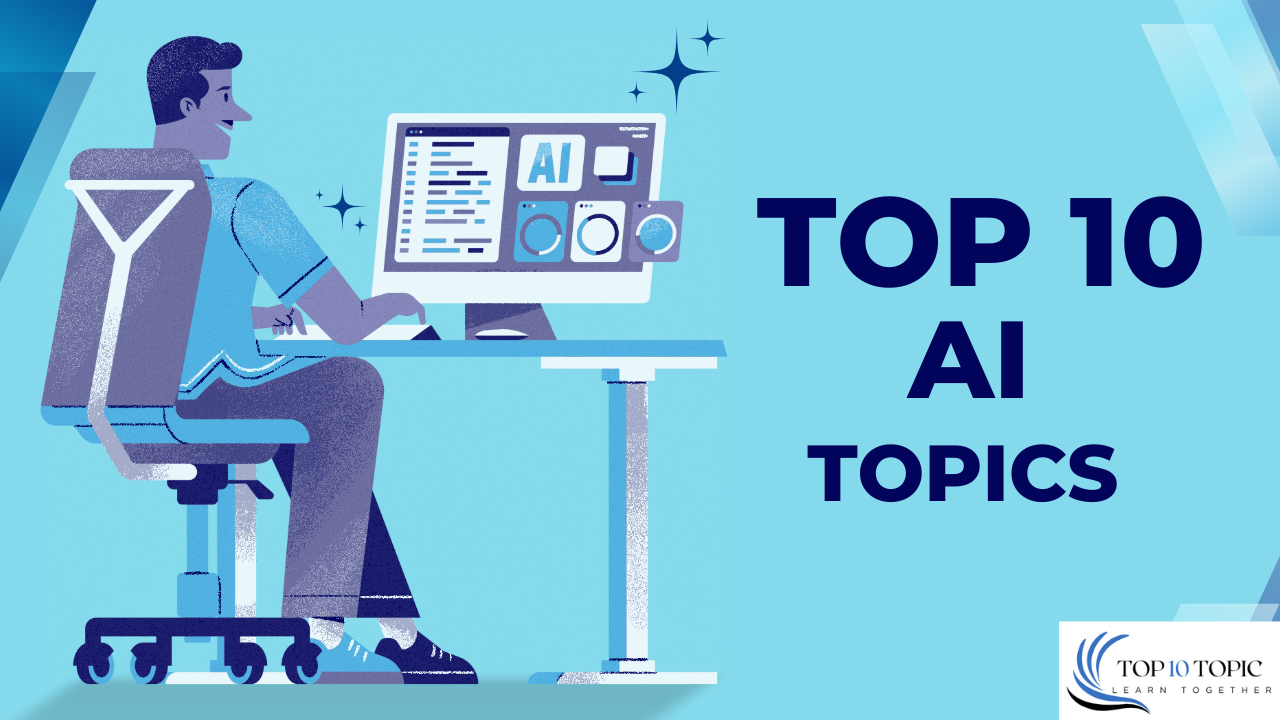Here are some introductory points you can use to introduce AI topics in a presentation, essay, or discussion
Definition
Artificial Intelligence (AI) refers to machines designed to mimic human intelligence learning, reasoning, problem solving, and decision-making.
Growth
AI has evolved from simple rule-based systems to advanced deep learning models capable of creativity and autonomous decision-making.
Impact
AI is transforming industries like healthcare, finance, education, and entertainment, raising both opportunities and ethical concerns.
1. Generative AI
Imagine an AI that can write poetry, generate photorealistic images, or compose music all from a simple text prompt. Generative AI is revolutionizing creativity, but it also challenges our notions of authorship and authenticity.
Focus
Creating text, images, audio, and video using models like GPT-4, DALL-E, and Stable Diffusion.
Applications
Content creation, design, code generation, and personalized marketing.
Trends
Multimodal models (combining text, image, and sound) and ethical debates around deepfakes.
2. AI Ethics & Responsible AI
As AI systems make decisions in hiring, lending, and law enforcement, one critical question arises: Can machines be fair? The field of AI ethics tackles bias, transparency, and accountability in algorithms that shape our lives.
Focus
Creating text, images, audio, and video using models like GPT-4, DALL-E, and Stable Diffusion.
Applications
Content creation, design, code generation, and personalized marketing.
Trends
Multimodal models (combining text, image, and sound) and ethical debates around deepfakes.
3. Large Language Models (LLMs)
From ChatGPT to Gemini, AI now speaks, writes, and debates like a human. But how do these language models work, and what risks do they pose in spreading misinformation or replacing jobs?
Focus
Advanced NLP models like ChatGPT, Claude, and Gemini for human-like text generation.
Applications
Chatbots, virtual assistants, research summarization, and translation.
Trends
Smaller, domain-specific LLMs and reducing computational costs.
4. AI in Healthcare
AI is diagnosing diseases faster than doctors, predicting patient outcomes, and accelerating drug discovery. But can we trust machines with life-and-death decisions?
Focus
Drug discovery, diagnostics, personalized medicine, and robotic surgery.
Examples
AI-driven radiology tools (e.g., PathAI), genomics analysis, and wearable health monitors.
Trends
AI for aging populations and pandemic prediction.
5. Autonomous Systems
Self-driving cars, delivery drones, and robot assistants are no longer sci-fi—they’re here. But as AI takes the wheel, who bears responsibility when things go wrong?
Focus
Self-driving cars, drones, and robotics for logistics, agriculture, and manufacturing.
Examples
Tesla Autopilot, warehouse robots (e.g., Amazon Robotics), and delivery drones.
Trends
AI-powered drones for disaster response and ethical dilemmas in autonomy.
6. AI for Climate & Sustainability
Can AI help save the planet? From optimizing energy grids to tracking deforestation, AI is becoming a powerful ally in the fight against climate change.
Focus
Optimizing energy use, predicting climate patterns, and reducing emissions.
Examples
Smart grids, carbon footprint tracking apps, and AI-driven reforestation.
Trends
Green AI (energy-efficient algorithms) and biodiversity monitoring.
7. Computer Vision
AI now ‘sees’ and interprets the world—powering facial recognition, medical scans, and even self-checkout stores. But at what cost to privacy?
Focus
Image/video analysis for object detection, facial recognition, and AR/VR.
Applications
Surveillance, medical imaging, and autonomous vehicles.
Trends
Real-time video analytics and ethical concerns around privacy.
8. Reinforcement Learning (RL)
What if AI could learn like a child through trial and error? Reinforcement learning trains robots, game AIs, and even stock trading algorithms by rewarding success.
Focus
Training AI via trial-and-error (e.g., AlphaGo, robotics control).
Applications
Game AI, industrial automation, and resource management.
Trends
RL for real-world robotics and hybrid models combining RL with LLMs.
9. AI in Cybersecurity
As cyber threats grow smarter, AI is the new frontline defense—detecting attacks in real time. But hackers are also weaponizing AI, leading to an endless arms race.
Focus
Threat detection, fraud prevention, and automated response systems.
Examples
Darktrace’s AI antivirus, phishing detection, and network anomaly tracking.
Trends
AI vs. AI attacks (e.g., adversarial machine learning).
10. Edge AI
Why send data to the cloud when AI can run on your phone? Edge AI brings faster, more private smart assistants, wearables, and IoT devices.
Focus
Deploying lightweight AI models on devices (e.g., smartphones, IoT sensors).
Applications
Real-time processing for smart homes, wearables, and autonomous systems.
Trends
Federated learning and privacy-preserving AI.






